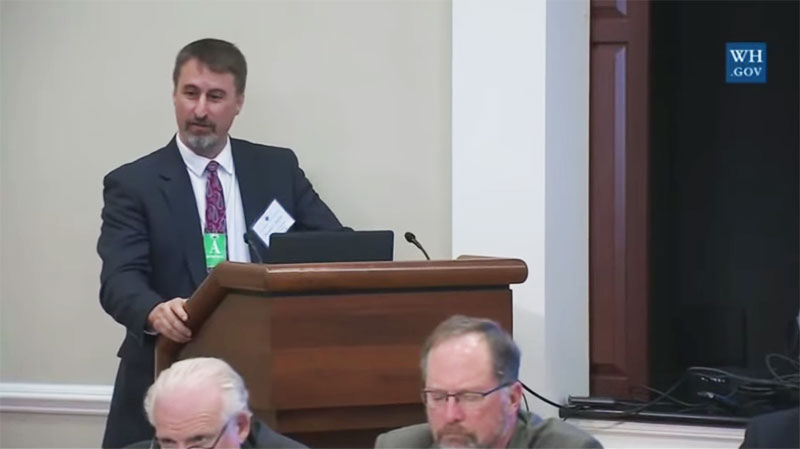Addiction medicine fellowship programs, which combine postgraduate medical education and physician-led research in the newly recognized subspecialty of addiction medicine, are crucial for addressing the substance misuse epidemic in the U.S.
That was the key message from the Department of Family Medicine and Community Health’s Randall Brown, MD, PhD, FASAM, at “Medicine Responds to Addiction II,” a White House symposium held October 25, 2016.
Video: White House Live: Medicine Responds To Addiction II
The Need for an Upstream Focus
Dr. Brown set the stage by explaining that, on average, it takes 17 years for evidence-based interventions to disseminate into clinical practice.
He also noted that only 11 percent of people with substance use issues requiring treatment have access to appropriate specialist care. Yet, two-thirds of people who engage in regular or risky substance use have had contact with general medical settings in the past year.
“Even with the best specialist treatment, we will not treat our way out of this epidemic,” he said. “Addiction…must be pre-emptively addressed or there will be no attenuation of our current tragic situation.”
The Value of Addiction Medicine Research, Education
Enter addiction medicine fellowship programs, such as the one Dr. Brown directs at the DFMCH, which aim to increase the addiction medicine physician workforce.
Dr. Brown explained that fellows conduct research and are “critical repositories of knowledge” on how existing evidence can and should be applied in practice.
They also serve as role models—for learners and practicing physicians alike—on the best ways to interact with patients who struggle with substance abuse.
“The combination of research and addiction medicine training…benefits not only our fellows, but residents, medical students, community physicians and other service providers who thirst for the opportunity to examine this illness through a modern lens, with modern, evidence-based interventions,” he said.
Dr. Brown is on the Board of Directors of the American Board of Addiction Medicine (ABAM) and the ABAM Foundation.
Joining him at the White House symposium were representatives from the Office of National Drug Control Policy (the “drug czar”), the National Institutes of Health, the Substance Abuse and Mental Health Services Administration and several medical board and accrediting organizations. Ten medical school deans and associate deans and 22 ABAM diplomates also attended.
Published: November 2016

